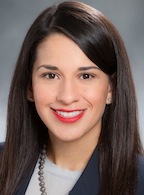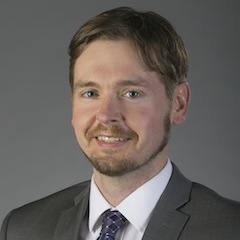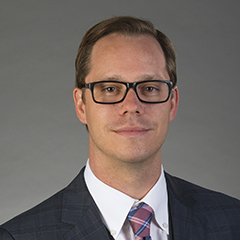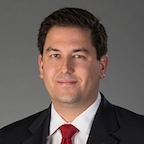Daily Business Report-April 21, 2015
The degree is a 31-unit program that can be completed in 20 months.
USD to Offer Unique Online Master’s
Degree Program on Law Enforcement
The University of San Diego is launching an online Master of Science in Law Enforcement and Public Safety Leadership program that was created with collaboration from the San Diego Police Officers Association, Deputy Sherriff’s Association of San Diego, and a number of experts from other law enforcement and public safety agencies in San Diego County.
The degree is designed to fulfill the critical needs missing in traditional criminal justice programs by providing tangible leadership and management skills that address the needs of contemporary law enforcement.
“When meeting with local law enforcement and public safety experts, they shared a consistent message with us,” said Jason Lemon, dean of professional and continuing education at USD. “The growing number of vacancies from retirements in leadership positions compounded with the public scrutiny that agencies are currently experiencing has changed the educational needs of law enforcement. Rather than just focusing on traditional criminal justice curriculum, this degree responds to the expressed need for leadership development and will provide immediately applicable skills that will produce the next generation of leaders in law enforcement.”
The program will begin Sept. 8 with final applications due Aug. 10.
The degree is a 31-unit program that can be completed in 20 months and covers a variety of topics, including leadership, conflict resolution, critical decision making, ethics, and budget and finance. The fully online format accommodates busy schedules and is geared toward law enforcement and public safety professionals focused on fast tracking their careers.
To apply or learn more about the program, visit https://onlinedegrees.sandiego.edu/programs/master-of-science-in-law-enforcement-and-public-safety-leadership/
Researchers Win $3.9 Million to Study Brain
Regions that Suppress Cocaine and Alcohol Cravings

Scientists at The Scripps Research Institute have been awarded two grants to study brain mechanisms that actively suppress relapse associated with cocaine and alcohol addiction.
The studies will be funded by grants worth more than $2.1 million from the National Institute of Health’s National Institute on Alcohol Abuse and Alcoholism and $1.7 million from the agency’s National Institute on Drug Abuse.
Nobuyoshi Suto, a newly appointed assistant professor of molecular and cellular neuroscience at TSRI, will be the principal investigator for the two five-year studies. “The risk of chronic relapse, even after long periods of abstinence, is a major issue in treating addiction,” Suto said.
Previous studies have shown that external stimuli or cues signaling the availability of drugs or alcohol (“availability cues”) — such as drug paraphernalia or the smell of beer — can activate certain types of neurons, neurochemicals and circuits in the brain and trigger relapse.
Suto and his colleagues, however, are looking at the opposite phenomenon. In preliminary studies, they have demonstrated that cues signaling the unavailability of drugs or alcohol (“omission cues”) can actually suppress relapse in well-established animal models of drug addiction.
“If we can better understand these brain mechanisms that actively suppress — as opposed to promote — relapse, we may be able to develop a drug to enhance these mechanisms and maybe mimic those relapse-suppressing cues,” said Suto.
Citigroup, New York Law Firm
To Help San Diego With Stadium
San Diego announced Monday the hiring of investment banker Citigroup and New York law firm Nixon Peabody to develop financing options for a potential new stadium for the Chargers.
Both firms have extensive experience with professional sports facilities throughout the country, including several NFL stadiums.
“The hiring of nationally recognized experts is another positive step toward creating a real and responsible stadium plan. These experts in finance and negotiation will help make sure taxpayers get a fair deal,” said Mayor Kevin Faulconer.
“They have a proven track record of getting NFL stadiums done and will ensure that the financing plan we put together in San Diego is rock solid. We’re making progress toward a real solution that can garner broad public support.”
Citigroup’s recent projects include the new Atlanta Falcons stadium, MetLife Stadium (New York Giants/Jets), Citi Field (New York Mets) and the Amway Center (Orlando Magic). Each of the New York projects included stadium revenue pledges — including naming rights, premium seating, advertising and sponsorships — that are under consideration in San Diego.
Nixon Peabody has provided advice on more than 25 professional sports facilities, including 12 NFL stadiums.
“I’m delighted with the choice of Nixon Peabody and Citigroup,” said County Supervisor Ron Roberts. “The partnership brings the creativity, tenacity, insight and financial knowledge necessary to guide us in the preparation of a reasonable stadium funding proposal.”
Earlier this month, the City Council and the county Board of Supervisors each unanimously approved a partnership between the city and county to work collaboratively and share consultant costs for a potential new stadium for the Chargers.
The city and county will each pay half the costs for the retention of consultants, attorneys and other experts in stadium financing and development matters. Under the agreement, the city and the county will each contribute a total of no more than $250,000.
The Chargers and Oakland Raiders are also considering a plan to build a join-use stadium in Carson near Los Angeles.
— Times of San Diego
Study: New Chargers Stadium Ballot
Measure is ‘Winnable’ in 2016
A proposal for a new Chargers stadium in San Diego faces a challenging but winnable path to victory on the 2016 ballot, according to a new analysis published by the National University System Institute for Policy Research.
San Diego city officials have pledged to put a new Chargers stadium proposal to a public vote in the future. With limited polling data and few details available on an emerging stadium proposal, it is unclear how a stadium ballot measure would fare before the electorate.
To bring greater insight into this topic, the institute identified key dynamics to look for in a future referendum. Using GIS software and data from the Registrar of Voters, Statewide Database and Political Data Inc., the institute developed baseline projections for the 2016 election cycle.
Overall, the analysis found that:
• Public votes for new sports stadium are becoming less common. The majority of new NFL stadiums that have opened or been approved in the last 10 years did so without a direct public vote.
• Passing a new Chargers stadium ballot measure in 2016 is feasible. Both historical data from the 1998 Proposition C election as well as current registration and turnout trends suggests a 2016 vote on the stadium will be challenging but winnable.
• New voter coalitions will be required for a stadium to succeed on the ballot. The unique Republican-Latino voter coalition that emerged to help propel the new Padres ballpark to victory in 1998 may emerge in 2016, but will need to be expanded in order to succeed against current voter registration trends.
• Mayoral support isn’t likely to have electoral consequences. San Diego Mayor Kevin Faulconer is unlikely to be rewarded or punished by voters based on the outcome of current negotiations with the Chargers, or the result of a future Chargers ballot measure in 2016.
“There are still many important details to be negotiated with the team and finalized, so our analysis only focuses on what we know about San Diego voters and election dynamics,” said Vince Vasquez, senior policy analyst and author of the report. “That said, we know more today about effective voter targeting and techniques than we did when the Padres ballpark measure passed in 1998.”
The report can be found online here.
Corporate Directors Forum Opens
Nominations for Director of the Year Awards
Nominations for Corporate Directors Forum’s annual Director of the Year awards are now open. The awards will be held on Sept. 15 at the Hyatt Regency La Jolla and will recognize directors for their outstanding performance in the boardroom.
Honorees from public, private and nonprofit organizations are nominated by their boardroom peers to recognize their extraordinary contributions in six categories: Corporate governance, Corporate citizenship, Enhancement of economic value, Corporate governance, non-for-profit board, Companies in transition andLifetime achievement. Nominations will be accepted through May 29 at www.directorsforum.com/DOY15/nominations.php
Nominees may be from any industry but must reside in San Diego County or serve on a board of a company headquartered in San Diego. Awards are based on directors’ recent achievements (except for the Lifetime Achievement award).
The Director of the Year awards gala dinner is open to the public and ticket prices are $250 per person or $2,000 for a table of 10. Reservations: call (858) 455-7930.
Governance Academy Set for May 14-15
To prepare directors for the complexities of the boardroom, Corporate Directors Forum will hold its Governance Academy on May 14–15 at the University of San Diego. The two-day training course is designed to expand boardroom competencies, confidence and personal networks.
Course leaders will be Michael J. Berthelot, CEO of Mission Manager Inc. and director at Fresh Del Monte Produce Co., and Julia R. Brown, director at Targacept Inc. and Biodel Inc.
To learn more and register for the event, contact Corporate Directors Forum at (858) 455-7930 or visit www.directorsforum.con/academy.
Hughes Marino Opens 2 New Offices

Commercial real estate company Hughes Marino has opened two new offices in Northern California and expanded its Los Angeles office.
“We’ve worked in Northern California for years, but having a local office in San Francisco and another in Silicon Valley will enable us to provide even better service and on-the-ground support to our clients in those markets,” said Hughes Marino CEO, Jason Hughes.
Hughes Marino has outgrown its Century City office and is relocating to a larger location in West Los Angeles at 11150 Santa Monica Blvd. The office will be the firm’s second Los Angeles area office, joining the existing downtown Los Angeles office.
Hughes Marino also has offices in San Diego and in Orange County.
Personnel Announcements
Southwest Strategies Hires Diana Palacios

has joined Southwest Strategies, the San Diego-based public affairs firm, as manager of public affairs.
Palacios is a seasoned communications and political strategist with a background in public policy, land use and communications. She has a decade of experience in government relations, legislative affairs, media relations, coalition advocacy, Latino outreach and crisis communications.
Prior to joining the firm, Palacios was deputy chief of staff and policy director to City Councilman Scott Sherman. In 2012, she served as director of outreach for then Councilman Carl DeMaio.
Palacios previously worked for U.S. Sen. John Cornyn of Texas. She has worked on several national and local political campaigns.
Six Community Association
Managers Earn Certification
Six community association managers from the greater San Diego area have earned the Certified Community Association Manager (CCAM) designation from the California Association of Community Managers . The CCAM is the only California-specific designation in the industry that certifies a community manager’s knowledge and expertise in California law, ethical standards and best practices in governing homeowners associations.
The managers are: Jennifer Figgers with California Community Management in Escondido; Kathleen Griffith with AAM LLC in Carlsbad; Shauna Caldwell with A. McKibbin & Co. in La Jolla; Vlady Dmytrenko with Castle Breckenridge Management in La Mesa; Autrey Porter III with Menas Realty Co. in San Diego; and Mark Tracy with Coronado Shores Condominium Associations/Cabrillo Tower in Coronado.
Three Associates Join Seltzer Caplan McMahon



The San Diego-based law firm of Seltzer Caplan McMahon announced that Edward O’Connor, Jacob Spaid and David Stone have joined the firm as associates.
O’Connor’s practice focuses on civil litigation with an emphasis on real property, construction and business disputes, as well as related insurance and appellate issues
Spaid joins the firm’s litigation department. He represents clients in state and federal courts primarily in the areas of employment, insurance, contractual disputes and general civil litigation.
Stone joins the firm’s business department. His practice focuses on transactional business with an emphasis in real estate finance, development, acquisitions and sales, joint ventures, corporate, securities, mergers and acquisitions and transactional tax structuring.


